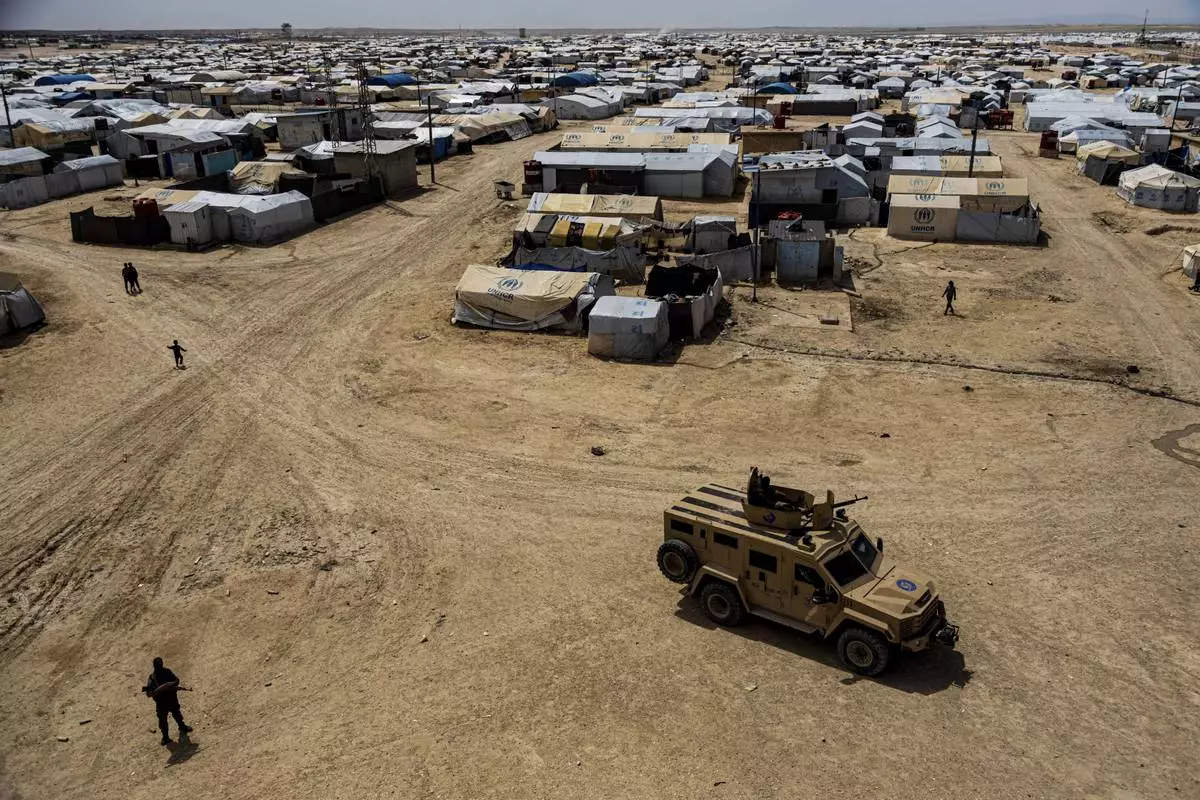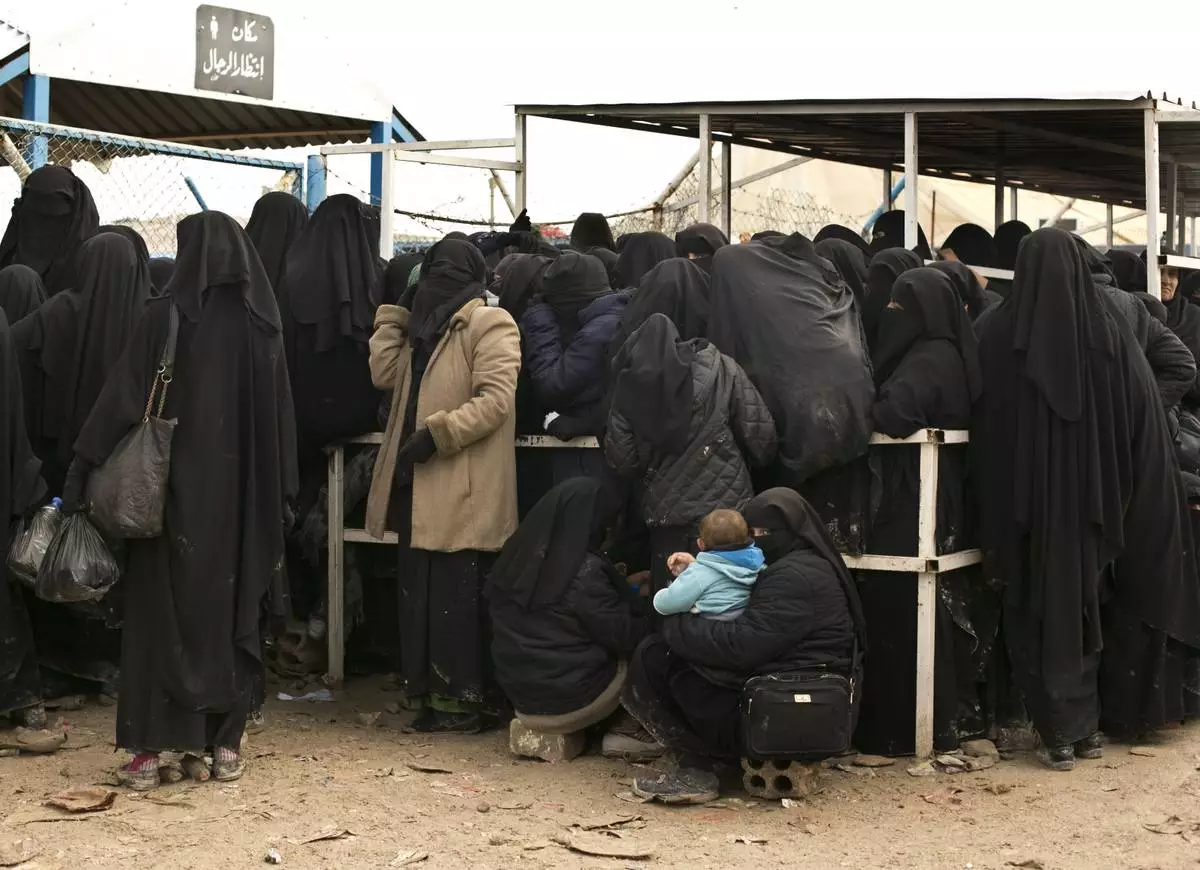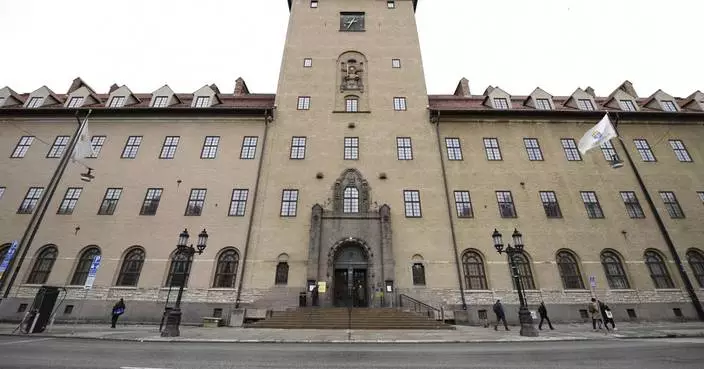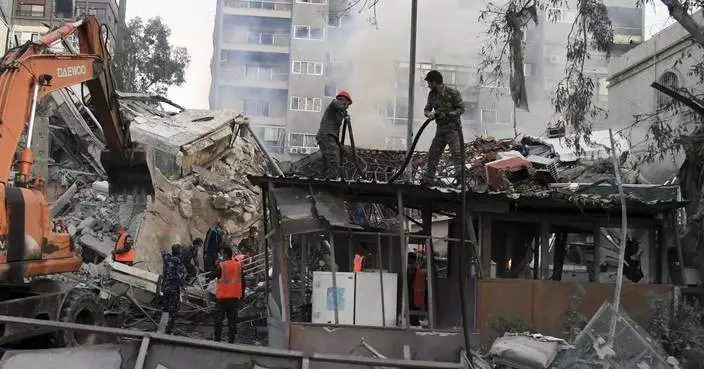Sweeping U.S. sanctions against the government of Syrian President Bashar Assad undermine regional rapprochement efforts that could help settle the Syrian conflict, the foreign minister of the United Arab Emirates said on Tuesday.
In a joint press conference with his Russian counterpart in Abu Dhabi, Emirati Foreign Minister Sheikh Abdullah bin Zayed Al Nahyan pushed for “joint action with Syria,” saying that the American economic pressure campaign “as it is today makes the matter difficult.”
He further pushed for the reinstatement of war-torn Syria in the 22-member Arab League and noted the government and private sector “could play a role” in returning Syria “to normal” after years of ruinous war.
Sheikh Abdullah's remarks underscore shifting regional dynamics as the 10-year anniversary of Syria’s civil war looms next week. The United Arab Emirates had supported the Syrian opposition during the early years of the war.
But as the Syrian army recaptured most of the territory from the opposition, the UAE and other Arab countries made openings toward Assad’s government. In 2018, the UAE reopened its embassy in Damascus, for the first time since the start of an organized Arab diplomatic boycott in 2011.
Syria near-complete isolation has increased since the Trump administration in 2019 enacted legislation known as the Caesar Syria Civilian Protection Act. The sanctions, which U.S. officials said aimed to hold “accountable the Assad regime for atrocities it has committed against its own people,” target Assad, his close circle of associates and family, senior security officials and troops as well as the Central Bank and any institutions believed to have played a role in the violence in the war in Syria.
While Assad may have won the military war against his opponents with the help of backers Russia and Iran, he faces an even bigger challenge of governing while more than 80% of his people live in poverty.
Russian Foreign Minister Sergey Lavrov did not elaborate on the Syrian conflict at the press conference beyond saying that Russia “supports a political settlement” there, as well as in war-scarred Libya and Yemen.
In Libya, the UAE and Russia provided military aid to east-based Libyan commander Khalifa Hifter as his forces battled the U.N.-recognized government for control of the country's capital last year.
BEIRUT (AP) — Amnesty International said Wednesday it has documented widespread abuses, including torture and deprivation of medical care, in detention facilities holding thousands of suspected Islamic State members and their relatives in northeast Syria.
The centers and camps hold about 56,000 people — the majority of them children and teens — and are run by local authorities affiliated with the U.S.-backed, Kurdish-led Syrian Democratic Forces. The SDF and its allies, including U.S.-led coalition forces, defeated the Islamic State group in Syria in 2019, ending its self-proclaimed Islamic “caliphate” that had ruled over a large swath of territory straddling Iraq and Syria.
What to do with the suspected IS fighters and their families has become an intractable issue. Many countries whose citizens traveled to Syria to join IS have been reluctant to repatriate them, as have local communities in Syria.
"People held in this system are facing large-scale violations of their rights, some of which amount to war crimes,” Nicolette Waldman, Amnesty’s senior crisis advisor, told journalists.
The United States is also responsible for the alleged violations because it played a key role in establishing and maintaining the detention system, providing hundreds of millions of dollars to the SDF and affiliated forces and regularly interrogating detainees, Waldman said.
The human rights group interviewed 126 people accused of IS affiliation currently or formerly detained, along with representatives of the local administration and aid workers.
The Amnesty report said the vast majority of detainees are being held “indefinitely, without charge or trial, in violation of international human rights law and international humanitarian law,” while those who have been tried were, in many cases, convicted on the basis of confessions extracted under torture.
The alleged abuses include “beating, stress positions, drowning, electric shocks and gender-based violence,” including a male detainee who said he and others had been sodomized with broomsticks by guards, the report said. Detainees were also deprived of food, water and medical care and subjected to extreme cold and heat in overcrowded cells, with some allegedly dying of suffocation, it said.
The report added that many of the approximately 14,500 women and 30,000 children held had been victims of human trafficking, including women who were forced to marry IS fighters and minors who were forcibly recruited by the group, and that local authorities had failed to set up a “mechanism to identify trafficking victims” and protect them.
The report also criticized the practice of forcibly separating adolescent boys — some as young as 11 or 12 — from their mothers and placing them in rehabilitation centers indefinitely.
Amnesty called on local authorities, the U.S. government and other allies to bring the detention system into compliance with international law and urged the United Nations to work with them to establish a screening process to release all who are not “reasonably suspected” of having committed a serious crime.
The Autonomous Authorities of the North and East Syria Region, the civilian administration affiliated with the SDF, wrote in response to the Amnesty findings that it had not received any official complaints regarding torture in detention facilities and “if this happened, they are individual acts.”
The administration said it would take action against employees who committed violations if evidence is provided. It denied allegations that inmates were deprived of food, water and medical care. It acknowledged overcrowding in the facilities, which it attributed to lack of financial resources to secure larger centers.
The local authorities took issue with the allegation that people were arbitrarily detained, asserting that most detainees “are members of a terrorist organization and were arrested during the battles" and that many had committed crimes against humanity and war crimes.
The U.S. State Department said in its own response that “we share many of (Amnesty’s) concerns” and it has been working to address them. It called on the international community to “aid local entities’ management of these challenges” and for countries with citizens held in detention in Syria to repatriate them.
Waldman said she believes Washington "very likely knew about these poor conditions from the beginning."
She added: “We think that it may not be the case that they are doing everything they can. They need to accept a much greater responsibility, especially since they played such a key role in establishing the situation in the first place."

FILE - Kurdish forces patrol al-Hol camp, which houses families of members of the Islamic State group in Hasakeh province, Syria, on April 19, 2023. Amnesty International said Wednesday, April 17, 2024 it has documented widespread abuses, including torture and deprivation of medical care, in detention facilities holding thousands of suspected Islamic State members and their relatives in northeast Syria. (AP Photo/Baderkhan Ahmad, File)

FILE - Women residents from former Islamic State-held areas in Syria line up for aid supplies at Al-Hol camp in Hassakeh province, Syria, March 31, 2019. Amnesty International said Wednesday, April 17, 2024 it has documented widespread abuses, including torture and deprivation of medical care, in detention facilities holding thousands of suspected Islamic State members and their relatives in northeast Syria. (AP Photo/Maya Alleruzzo, File)











